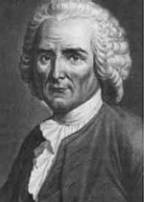Some Comments on Smith's Who's Afraid of Postmodernism? Chapter 2: Nothing Outside the Text?

 I apologize for not posting since the end of July. Things are hectic here at the lakehouse in Georgia (see www.yourfamilyblog.blogspot.com), and the only time I have for reading and reflection right now is between supper at 6 and bedtime at 9:00. This round of outside hard work will go on for another week, and then, mercifully, the deck project will be over. I do, however, want to keep up the posts regarding Smith's book on postmodernism and our advantage as Christians in understanding the movement. Part of what I'll post tonight are simply notes on (mostly a summary) of what I think I've read in Chapter 2, an extended discussion on Derrida.
I apologize for not posting since the end of July. Things are hectic here at the lakehouse in Georgia (see www.yourfamilyblog.blogspot.com), and the only time I have for reading and reflection right now is between supper at 6 and bedtime at 9:00. This round of outside hard work will go on for another week, and then, mercifully, the deck project will be over. I do, however, want to keep up the posts regarding Smith's book on postmodernism and our advantage as Christians in understanding the movement. Part of what I'll post tonight are simply notes on (mostly a summary) of what I think I've read in Chapter 2, an extended discussion on Derrida.But first some personal history: I first ran into Derrida at The Johns Hopkins University in the early 1980s while attending an NEH seminar under the in/famous Stanley Fish. It was a wonderful summer of disorientation as I began to see what Derrida’s “deconstructive” posturings were all about. Quite frankly, I found Derrida’s vision of language, writing, and speech not only upsetting, but interesting and challenging. In fact, I somehow managed to get some essays published as I explicated some seventeenth-century texts deconstructively. It was fun.
Now back to Chapter Two. I'm not going to suggest a discussion of the whole chapter; rather tonight I'd like to see if I can paraphrase pages 31-35. After another day or two I'll share what I think Smith is saying in pages 35-42.
The well-known post-modernist Jacques Derrida is famous for this dictum: “There is nothing outside the text.”
As prelude to our understanding of Derrida, Smith asks to consider Memento, a movie I’ve not seen, but one which I think I’ll try to get through Netflix real soon. The gist of movie’s plot and theme is something like this: Because of an accident, Lenny’s got no short term memory. To make or muddle his way through life Lenny relies on little pieces of self-written notes that give him clues as to who he is, where he is, what he needs to do, why he lives and so on. Having learned to trust these self-written texts, he’s eventually had important texts tattooed on his body so that he can stand in front of a mirror and read himself and so function in the world. Without his texts, Lenny isn’t Lenny.
But Lenny also has a problem. Obviously, he functions only when he’s got pens and pencils. More of a problem is that Lenny sometimes confuses his a laundry list with his grocery list. He’s in danger of eating his underwear for breakfast! However, most disconcerting is Lenny’s quandary: how does he know that the texts actually refer to some outside world? To keep himself alert to the possible of an outside world, Lenny keeps telling himself: “I have to believe in a world outside my own mind. I have to believe that my actions still have meaning, even if I can’t remember it.”
It’s clear that Lenny’s got problems. Lenny’s relationship to his texts is one we also have. Language, spoken or written, is the necessary filter through which the world comes to us! “All of us,” Derrida observes, “interpret out world on the basis of language (broadly understood).” All of us, Smith reiterates, “need crib notes and cheat sheets to make our way in the world” (34). It’s for this reason that Derrida contends that “there is nothing outside the text.”
Please don’t misunderstand Derrida. He is not saying that the world is a book and that we don’t have things. We Christians ought not to think that Derrida is so outrageous as to deny there are real things in the world. That would be to seriously misunderstand Derrida.
What then is Derrida saying with his “provocative claim that there is nothing outside the text”? In Grammatology (a daunting book I read years ago), Derrida takes a hard look at Jean-Jacques Rousseau’s notion that "language is an obstacle to the world" (36). Rousseau thought we ought to take in the world just by experiencing it; if we try to take in the world by using language, we get a distorted vision of things. Language corrupts our knowledge and reception of the world. Rousseau longs for "the good old days" when we lived with language in the "state of Nature," as he calls it. Rousseau wants somehow to eliminate the distorting lens of language so that we don't have to interpret the world. "Give us the world unmediated and raw!" Rousseau says. Go directly to the world and take it in! See the cup! See my wife! Don't interpret! "For Rousseau, Leonard--with his condition--is a freak, literally un-natural."
Well, is my summary of Smith's presentation okay so far? Would someone like to summarize the next several pages?
Andy

0 Comments:
Post a Comment
<< Home